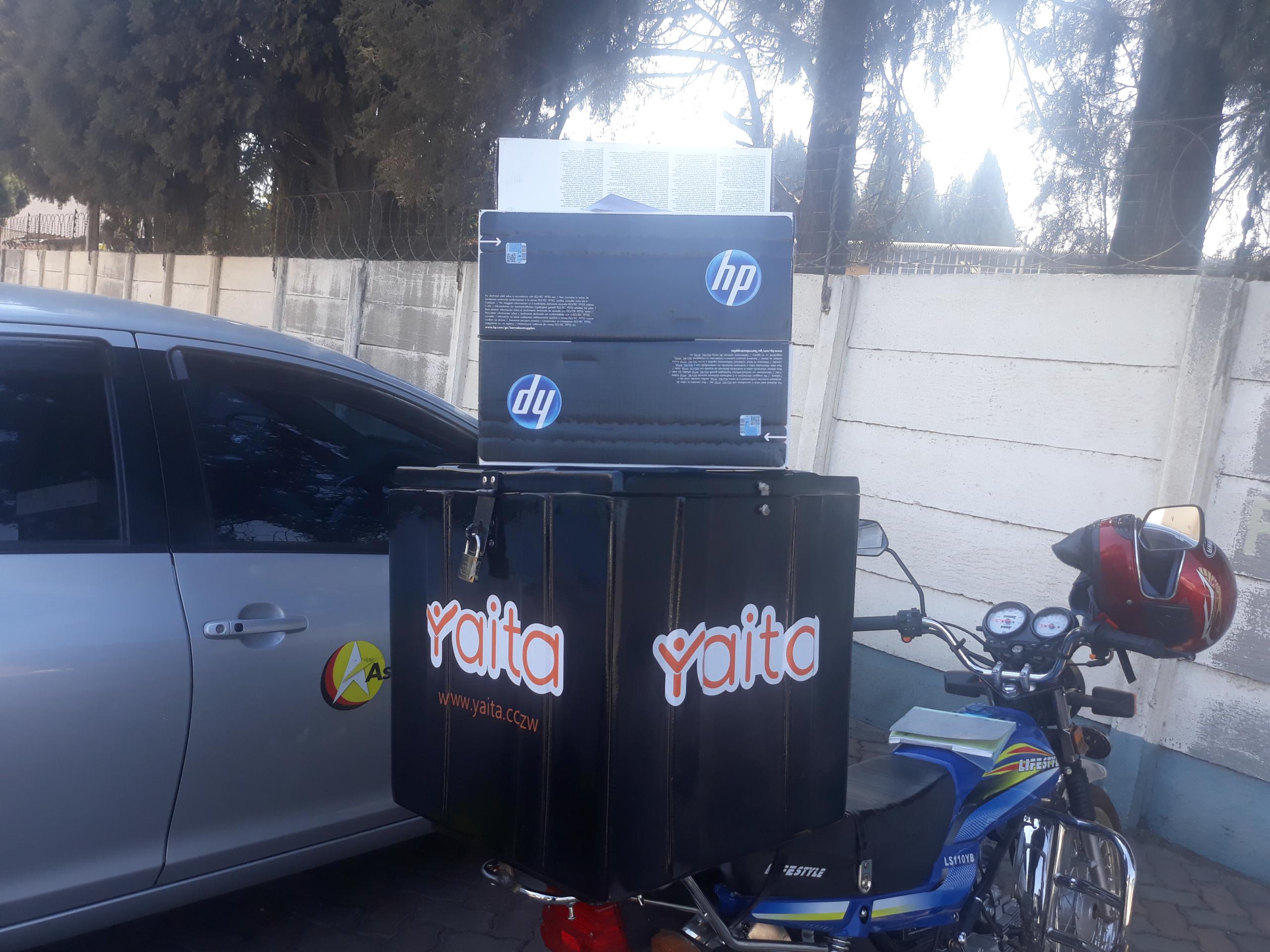A couple of weeks ago we featured an article that looked at ZimPost’s e-commerce aspirations. ZimPost has the infrastructure to make the most of the e-commerce bloom caused by the COVID-19 pandemic. This isn’t to say they have sat on their hands. They have made strides in roping in outlets as partners but there is so much more going on that they can capitalise on.
ZimPost being as large as it is could really solve a number of problems that have been brought on by the pandemic. Among the very many problems brought on by the coronavirus, there are two that stand out. The first is employment creation, and the second is delivering goods and services to people.
Well, there seems to be a company in Zimbabwe that is ticking those two boxes. This company isn’t taking the conventional approach of investing heavily in fleets of vehicles. They have taken the independent operator approach similar to Vaya but their focus is solely on courier services. The company in question is called Yaita.
What is Yaita?
Yaita is a delivery fulfilment or package delivery company that serves businesses. Their staff is made up of operators who come into the company with their own vehicles, be it a motorcycle, small car, van or truck.
To get greater insight into the company we reached out to Yaita’s CEO and Co-Founder Tendai Mupaso. I can’t imagine there would be anyone better placed to describe the origins of the company, and he had this to say:
Coming from a digital marketing background, we were trying to figure out how full circle e-commerce could effectively work for businesses in the African environment. Businesses in Africa and Zimbabwe, in particular, are largely informal with a weak supply chain and sales often happen on an on-demand basis through WhatsApp and other social media platforms.
Add to that logistics bottlenecks and weak infrastructure, we sought to find a solution that would address both the problems and the context of e-commerce in our environment.
This need then led to the founding of the company in 2018. Yaita’s aim is to let businesses have or retain the ability to serve their customers on demand. This means that businesses can operate remotely with Yaita acting as conveyance businesses use to get their products or supplies to wherever they are needed.
The use of independent operators
The use of independent operators is something that intrigued me. The whole concept of sharing resources or an individual using a resource they already have in order to make a living is something that I think is a better way to maximise those resources already available. Especially in Zimbabwe where there is a limited supply of very many things.
To become a Yaita operator one needs to have:
- A vehicle (motorcycle, small car, van or truck) that is in good condition and is registered
- The operator needs to, of course, provide a licence for that mode of transportation
- Produce clearance letter from the ZRP
- Operators will also have to pass security checks
The one mode of transportation that isn’t widely used by individuals in Zimbabwe are motorcycles. Motorbikes are, in my experience, used recreationally or in remote areas. According to ZIMSTAT’s Multiple Indicator Cluster Survey for 2019, the percentage of households with one or more individuals who own a motorcycle or scooter is 1.8%. The greater proportion of those who own motorbikes is in rural areas. So with figures that low I was curious as to how large the pool of candidates Yaita would have that owned motorcycles:
“Zimbabwe is not traditionally accustomed to motorcycles as a form of transport unlike in other African countries like Tanzania and Kenya and finding people who meet the above criteria was initially challenging. Once we knocked on the right doors and started meeting the right people, our network started growing from there.
We believe there is a lot of idle capacity out there and we have made strides to prove we can add value to motorcycle owners who would be inclined to park their bikes.
Tendai Mupaso, Yaita Co-Founder and CEO
Kudos to them if they have found a pool of people that have motorcycles lying idle and are willing to make some money off of them.
As far as operator safety goes Yaita have made it their goal to both keep to the schedule of deliveries and to make sure that their operators are safe. They do this by continuously training and educating their operators in order to foster a culture of safety. Yaita hopes that their growth trajectory can allow them to offer operators benefits like medical aid, life cover, and funeral insurance.
Network of operations
Currently, Yaita is based and operates in Harare but they are making inroads into other areas like Bulawayo and Gweru. According to their website, in Harare they have fostered relationships with companies like Get Drinks, Utano Africa, Ndakanaka, innovative Technologies, Courier Connect and more.
The service
Yaita can be accessed through their website where it gives visitors a list of options depending on the distance from point of pickup to drop off, and the method of transportation that is used. They also have an internal quality control system as well as transit insurance cover in case goods get damaged, lost or are stolen before delivery.
This, I think, is an interesting approach to dealing with the vacuum in package delivery in Zimbabwe.


What’s your take? Cancel reply